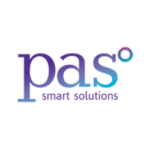 While there is a multitude of reasons for the global shortage of hospitality workers, for the here and now, hotels need to act as if the workers they have are all they will have for the near future.
While there is a multitude of reasons for the global shortage of hospitality workers, for the here and now, hotels need to act as if the workers they have are all they will have for the near future.
Existing associates needed to be empowered, prepared to do more, and ultimately to be more effective, they needed to be trained in areas outside their specialty. With this expectation of associates to do more, the hotels likewise have to be flexible with quality of life requests from the associates and possibly additional compensation demands. When it specifically comes to hotel digital marketing, where the discipline is particularly specialized, the issue is much more daunting.
Hotel marketing teams have 20 or so different tools to use on a weekly basis. Each one with a specific purpose. Ranging from entry, optimization, distribution, acquisition, budget management, and reporting.
The challenge with training internal associates is they already have responsibilities and this is just adding more to their daily to-do list. For the short-term, it’s doable but it is not a practical solution for the long term. If a hotel chooses to leverage internal associates and train them outside their area of functional expertise, it can either be done quickly with little value-add from the associate or it can take a bit longer where the associate can generate additional value.
The quick training is “How” training. The longer and better training is the “Why” training. “How” training is where associates get a list of steps to follow to run a report, update content, or provide operational support. This is quick training and requires minimal effort to hand over a basic checklist. Then there is the “how” coupled with the “why.” Why is this report being run? Why does this content need to be updated? Why is this type of support needed? Training that provides the “why” is much more powerful and ultimately makes the associate doing the work a much more valuable resource because if they encounter an issue related to the task, they can think through the “why” and ultimately figure it out. The “why” takes more time to train versus handing over a checklist but the investment in time reaps a significant ROI in terms of associate productivity. The “why” training will also help the hotel drive more digital marketing value until a long-term staffing solution is found. However, unless the hotel associate wishes to become a digital marketing subject matter expert, this is not a feasible long-term solution.
The reason that hotel marketers can’t be simply replaced with “Why” training has to do with the composition of their skillsets and the evolution of marketing. If we think of a typical digital marketer with skills being a mile wide and an inch deep (except in one specialty area where they are a mile long). This visually makes the T-shape and these experts are known as T-shaped marketers. The hotel marketer has to be a mile wide in skills, a mile deep in at least four specialty areas. In addition, they need to have strong communication skills that reach up to the leadership team and across to other departments/agencies and they have must have knowledge and expertise outside of their primary functional area in other departments with other teams. Therefore, the digital marketer is the glue that holds the hotel’s sales, marketing, revenue, distribution, call center, and operations teams together. All these attributes together make the hotel’s digital marketer very special and particularly hard to replace.
So for the existing cross-trained team to provide value-driven digital marketing support in a constrained environment, they need to pay particularly close attention to communication. The cross-trained team needs to proactively communicate what can be achieved by when and also take extra timing for planning. Setting expectations is critical to success. With less budget, fewer resources, what used to be done quickly now takes longer. However, people still outside the department focus on how fast work was turned around even though the staff is no longer with the company. Therefore, setting expectations about everything and communicating on everything is the most effective way to keep everyone aligned and focused.
Without setting expectations and assuming the organization will “just know the team can’t turn workaround as quickly” with minimal staff isn’t realistic; the perception will be the team is not as effective as it once was. Even if it is, perception is reality and no matter what the team is truly producing, it is what people in the hotel leadership are thinking that ultimately matters when it comes to their views of the department and the deliverables. Therefore, the best way to combat possible negative perceptions when there is less of everything is to communicate more than ever and indicate that work is still getting done, it will take a little longer which puts a heavier emphasis on planning versus being reactive.
Planning is also critical as the digital marketing team shares with their supervisors and department what they will get done this week, next week, next month, next quarter. In addition, identifying the possible obstacles in advance will also help get work done by addressing them before they become issues. Through communication and planning, teams can do more with less.
Outside of cross-training and communication, a key opportunity a hotel has with constrained digital marketing resources is to lean on partners outside of their organization for help. This introduces the point of differentiation between vendors and partners. Every company that provides services can be grouped as a vendor or a partner. Even highly commoditized services which provide access to a SAAS tool can be a partner.
To me, the distinction is quite clear. The vendor doesn’t care if a hotel is successful. What they do care about is the signed contract and making sure they are getting paid exactly what was agreed upon and they look for ways to upsell services that the hotel does not necessarily need. A partner, on the other hand, is a company that provides services/tools, but they care how their clients use their tools and try to figure out ways to continue to make them more successful.
A partner might even be willing to take a financial hit in the short-term to help their clients get past a bumpy period with the hope that in the long-term the client will be financially successful and in return value the partnership. A partner will only pitch additional services if they think it will drive revenue or reduce costs. A partner understands the hotel’s KPIs and helps to meet them on a recurring basis..
While hotels wait to emerge from the global hospitality shortage, they need to figure out how to do more with fewer digital marketing resources. In these cases, it’s important to execute effective cross-training that includes the “why,” focusing on setting expectations through clear communication and planning, and working with existing partners, and growing those relationships.


































